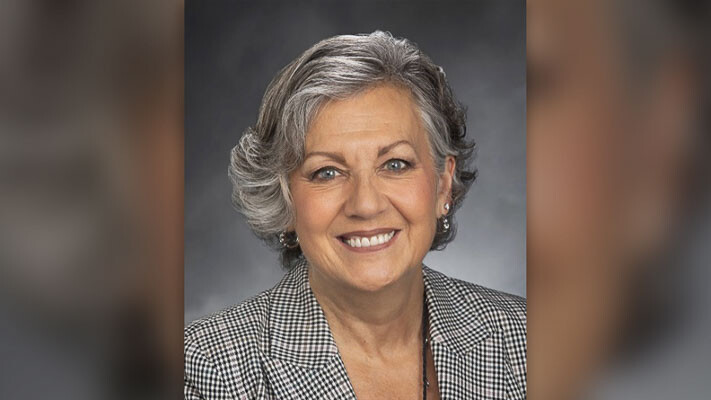
Sen. Lynda Wilson said she was informed that bipartisan legislation to reform Washington’s 1969 emergency-powers law will be ignored by the Senate State Government and Elections Committee for a third consecutive year
It appears Democrats in the state Senate have already decided to keep protecting the ability of Washington’s governor to unilaterally take control of residents’ lives for an indefinite period.
Sen. Lynda Wilson, R-Vancouver, said she was informed yesterday – day two of Washington’s 2023 legislative session – that bipartisan legislation to reform Washington’s 1969 emergency-powers law will be ignored by the Senate State Government and Elections Committee for a third consecutive year.
“The Republican leader on that committee met with the chair to talk about which bills will come up for public hearings this session. The emergency-powers bill isn’t on the list, again, even though it would simply bring state law further into the 21st century.” said Wilson. She and Democratic Sen. Mark Mullet of Issaquah had prefiled Senate Bill 5063 on Dec. 19.
“It’s disappointing that the Democrats have apparently decided so quickly against even discussing the idea of ensuring balance between the legislative and executive branches during whatever state of emergency comes next. You wonder why Senator Hunt, the committee chair, co-sponsored the changes made to the law in 2019 but reportedly won’t let the people be heard now that more reforms are clearly needed.”
In Washington, unlike many other states, the power to both declare and end a state of emergency still belongs only to the governor. SB 5063, referred to as the BALANCE Act – short for “bipartisan approach to legislative authority necessary in continuing emergencies” – would allow legislators to also terminate a state of emergency.
The bipartisan change to the law made in 2019 – the first revision in 50 years – allows legislators to review and place time limits on some but not all proclamations made by the governor during a state of emergency. SB 5063 would complement that partial reform by expanding legislative oversight to all emergency proclamations. As Washingtonians saw during Gov. Jay Inslee’s 975-day COVID state of emergency, such orders can prohibit everyday activities like engaging in normal business practices, gathering with loved ones and in-person classroom instruction.
This is the third emergency-powers reform bill introduced by Wilson and Mullet since Inslee’s COVID state of emergency was declared Feb. 29, 2020.
“Allowing one person to make the big calls alone clearly didn’t serve the people of our state well,” said Wilson. “I can imagine how the Democrats would react if a Republican governor were to hold onto emergency power for more than two years, and make some of the life-changing mistakes we saw from Governor Inslee during the pandemic.
“There are more important matters facing the Legislature this year – public safety, the cost of living, and support for education – but the flaws in the emergency-powers law are obvious. If the Democrats have a problem with fixing them, let’s hear it.”
Also read:
- Stephen Davis brings his message of unity with Turning Point USA presentation in VancouverStephen Davis of Turning Point USA visited Vancouver to share a message of unity and faith with students and families.
- Cardinals elect American pope to lead Catholic churchRobert Francis Prevost becomes the first American elected pope, taking the name Leo XIV following a fourth-round conclave vote.
- Camas Police arrest robbery suspectCamas Police arrested a 19-year-old Vancouver man following a reported armed robbery early Thursday morning.
- CCSO deputy involved in deadly force incidentA CCSO deputy reported fatally stabbing a DUI suspect during an altercation at the Ridgefield WSP Scale House.
- Opinion: Revolution or revival?Nancy Churchill argues that Washington state is ground zero for a Marxist-style revolution but says a cultural revival is possible through personal responsibility and the America First movement.
- WA governor pressed to veto $1.8B piece of Democrats’ tax billGrocers and restaurateurs are urging Gov. Ferguson to veto a surcharge in HB 2081 that they say will raise food prices statewide.
- CCSO makes arrest in attempted kidnapping investigationA 31-year-old Vancouver man has been arrested in connection with an attempted kidnapping involving a teenage girl near NE 149th Street.











